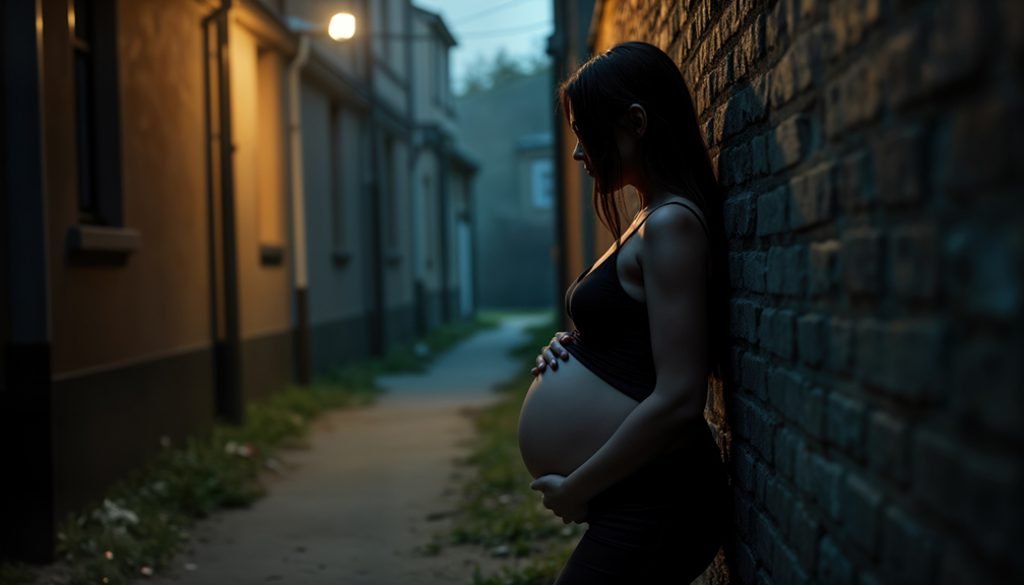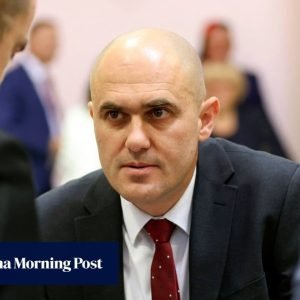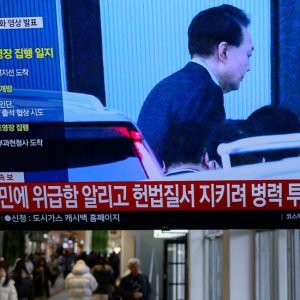
IT is purported to help address an undeniable problem—the alarming rise of teenage pregnancies in the country—but why are parents and some groups up in arms over the implementation of a Comprehensive Sexuality Education (CSE) program by the education department, and further embedded in Senate Bill (SB) 1979, otherwise known as the Prevention of Adolescent Pregnancy Act of 2023?
The CSE—and by extension, the bill—is facing a backlash after a video of Project Dalisay circulated online recently, drawing attention to the dire implications of the Department of Education’s (DepEd) CSE program and Senate Bill 1979, authored by Sen. Risa Hontiveros.
In the Facebook page of Project Dalisay posted on January 10, “Explainer Video: Unmasking the Perils of CSE,” former Chief Justice Lourdes Sereno, Chair of the PCEC Legal Advisory and Public Policy Review Commission and one of the convenors of the National Coalition for the Family and the Constitution (NCFC), said that in 2018 DepEd adopted CSE, which was pushed by United Nations agencies Unesco, UNFPA, and the Unicef.
“Duty nila [DepEd], na lahat ng references nilang dinikit, kasi iro-roll out na eh, should have been examined categorically as compliant with the Constitution. The Constitution requires us to look at the family’s life as sacred and as the foundation of the nation.
“The DepEd did not consult the parents, the Filipino parents, neither did they consult the faith community. They just rolled it out. Why? Because they need to comply with the international push to promote the CSE,” Sereno said.
“The DepEd did not consult the parents, the
Filipino parents, neither did they consult the
faith community. They just rolled it out.”—
Former Chief Justice Lourdes Sereno
our children, are at a tender age.
They’re innocent. You will shatter their
innocence.”—Pastor Caloy Diño, NCFC
National Director
mothers wake up [to this], watch out!”—
Jerika Ejercito Aguilar, PCEC Family
Commission
“We make sure that we have a balanced
perspective and implementation.”—
Education Secretary Juan Edgardo Angara
of those concepts exist in our bill. These
outrageous claims…were pulled out of thin air.”—Senator Risa Hontiveros
Innocence
Maloi Salumbides, co-chair of the Philippine Council of Evangelical Churches (PCEC), said that CSE will have a great impact on children.
Speaking partly in Filipino, she added, “And then there are the topics included for study and discussions pertaining to oral and anal sex,” she said.
Jerika Ejercito Aguilar, member of the PCEC Family Commission, shared Salumbides’s sentiment.
“It’s stated there, when they’re six years old, they will be taught how to experience their body through their five senses,” Aguilar said, referring to DepEd Sample CSE Curriculum-Sample Health Education 1.
“I was trying to play it out in my head: How are they going to do this in a classroom setting? I have a 10-year-old [child] but it says in the CSE, by age nine, they will be taught that they have their own sexual rights. And if they do decide to be sexually active, that’s their right?” she pointed out.
Aguilar admitted that she was surprised when she learned about CSE.
“You know, mothers don’t know about this. They will object. I just don’t know about it, but the moment I found out about it, everything I had in me [was determined to] fight for the innocence of my children. When the mothers wake up [to this], watch out!” she warned.
For his part, Pastor Caloy Diño, NCFC National Director, said that young children are not yet ready with CSE.
“Imagine, our children, are at a tender age. They’re innocent. You will shatter their innocence. Many things will be stirred that should not be stirred yet,” he said.
To Pastor Benji Cruz, National Director of Living Waters, CSE may sound like, “they are after our children to have freedom of choice.”
“That’s a lot of deception because the children do not have yet the capacity to be making the decision for themselves. And that life-defining decision has been entrusted by God to our parents,” he said.

DepEd listens
Education Secretary Juan Edgardo Angara, who was not yet DepEd chief when the CSE was included in the curriculum, has assured the public that “inappropriate” concepts will not be taught in schools.
Stressing that the door of the agency is always open, Angara has encouraged parents and concerned groups to express their concerns and suggestions regarding the current implementation of CSE and the provisions in SB 1979 that further enhance its practice.
“We are listening—then as senator and now as Secretary. The doors of DepEd are open to your views and suggestions, especially to concrete details,” Angara said, adding that as an implementing agency, they follow legislative developments that might impact their policies.
“We make sure that we have a balanced perspective and implementation,” Angara said as he recognized the role of DepEd in shaping life skills, values, and behaviors of students.
He noted that DepEd now stands at a critical time in their commitment to the health and well-being of the youth.
Data-driven
Angara stressed that every policy of DepEd is data-driven.
“This includes what our young people are going through, like teenage pregnancy, HIV, and gender-based violence,” he added in Filipino, stressing that they make sure that their steps respond to the needs of the learners, especially on how they treat themselves and others.
Angara acknowledged that these efforts require a multisectoral approach.
“As Chair of the Youth Committee in the Senate, we took proactive steps to address the alarming rise in teenage pregnancy. We filed a resolution aimed at adopting a whole-of-government approach to develop a comprehensive policy framework. This framework seeks to prevent early childbearing and mitigate its negative consequences, such as school dropouts, and ensure the welfare and future of our youth,” he explained.
Actively collaborating
To ensure that their programs are effective and culturally sensitive, DepEd is actively collaborating with various stakeholders, including health service providers and community organizations, including exploring models from the communities and other countries.
“Whatever direction we take, we believe in the active participation of the parents in the learning of our students,” he said.
“Together, we can create an environment that fosters understanding, respect, and our youth’s well-being. We invite all parties to work alongside us as we navigate this important journey,” he concluded.
Alarming trend
Based on the latest data released by the Philippine Statistics Authority (PSA), as reported by the BusinessMirror, thousands of illegitimate children were born to underage mothers—under 15 years old—and more than a hundred were born out of child marriages in 2023.
The PSA data also showed there were 3,343 children born to mothers who were 15 years old and younger in 2023.
Of this number, PSA said 3,225 children were born out of wedlock, while the remaining 118 children were born to 15-year-old and under mothers who were already married.
No room for complacency
CHILDREN spend a significant amount of time at school and it is very common for childhood relationships to form, or the feelings of romantic attraction or infatuation, with someone they meet there.
That is why, Fortress College (FC), now under the management of Central Philippine University, is not letting down their guard amid the threat of teen pregnancies.
Although this Christian school located in Kabankalan City, Negros Occidental, encourages students to be friendly with one another, intimacy with the opposite sex is totally taboo inside the campus.
Grace T. Hughes, school president, said that as a Christian school, they believe in always putting God first. Young people are more likely to avoid teen pregnancy if they fear God, she said.
“Bible classes help a lot as we teach students who they are. Their identity should be, must be, founded on the Lord Jesus Christ,” she said. They always remind students that their body is a sacred space—the temple of the Holy Spirit.
To help students understand sexual purity, Fortress College has been conducting a “True Love Waits” program for over 10 years now in lieu of the Junior-Senior Prom, to promote sexual abstinence. Parents are also part of the program.
Hughes explained that before the culmination of the True Love Waits program, a one-month seminar is usually held for the Grade 10 and Grade 12 students where they invite speakers.
Through True Love Waits, she said, they teach students that it is possible to show their love without engaging in premarital sex.
She is also thankful that parents are very cooperative and maintain an open line with the school if their children are having problems.
Complete fabrication
IN a press conference at the Senate on Wednesday, Deputy Minority Leader Risa Hontiveros, main sponsor of SB 1979, denied the claims of Sereno’s group.
“Una, walang anumang probisyon tungkol sa pagtuturo o paghikayat ng masturbation sa mga batang edad 0 to 4 years old o yung magtuturo daw diumano ng “bodily pleasure” sa mga batang 6-9 years old, o na ituturo din daw sa bata na may ‘sexual rights’ sila. Absolutely none of those concepts exist in our bill. Those lines in their supposed rebuttal are complete and total fabrication,” Hontiveros said.
Secondly, Hontiveros said that the Philippines is not using the “Standards for Sexuality Education in Europe.”
“Hindi din po ito ang reference sa Comprehensive Sexual Education, kundi ang Responsible Parenthood and Reproductive Health Law, which has long been enacted, so we can be sure this complies with our Constitution.
“There is also no provision in the bill that says we must follow the policies of other countries. So their post is really wrong—that says the Prevention of Adolescent Pregnancy Bill is unconstitutional,” she clarified.
Thirdly, said Hontiveros, the claim that children have the right to not tell their parents if they are sexually active is “fake news.”
“Where they got that, I don’t know. Because there is no law or any policy in the Philippines that attempts to prohibit parents from guiding their children. In short, I can confidently say: these outrageous claims from Project Dalisay were pulled out of thin air,” she added.
DWIZ interview
However, in a video interview with Senate reporters shared by DWIZ’s Cely Ortega Bueno, Sereno said that there are two documents that are claiming CSE international standards—the 0 to 4 years old teaching of masturbation can be found in the World Health Organization, while self-pleasuring is stated in the Unesco technical guidance.
“Of course you won’t [explicitly] see that in the bill. But when the bill says according to international standards on Comprehensive Sexual Education…that is it,” Sereno said.
Meanwhile, Hontiveros lamented that while there is a national emergency, Project Dalisay is still busy spreading fear.
Noting that she is also a mother to four children, three of them girls, Hontiveros said, “Enough is enough. Let us demand real education for our kids.” Hontiveros was joined by Usec. Angelo Tapales of the Council for the Welfare of Children and Dr. Jeepy Perez, former Executive Director of POPCOM.
This is not fake news
Project Dalisay immediately issued a statement saying they are not making false claims or campaigning against any politician, any senator, and definitely not fear-mongering.
“We are all busy, but carved out time to sound the alarm on a threat that many, including us, did not recognize at face value. We first learned in August 2024 that a Comprehensive Sexuality Education curriculum was already being implemented since 2022 in the Department of Education under DepEd Order 31 with its basic reference being the UNESCO International Technical Guidance on Sexuality Education—An Evidence Informed Approached,” the group stated, adding that PCEC’s LAPPRCOM (Philippine Council of Evangelical Churches-Legal Advisory and Public Policy Review Commission) held a workshop with various evangelical bodies.
They started a letter-writing campaign petitioning Angara to withdraw the CSE curriculum because of its constitutionally objectionable parts after they were “shocked” by their findings, and even did further research.
SB 1979
“IT came as a shock to us sometime also in August 2024, that there was already a bill on second reading, SB 1979, mandating the teaching of CSE in Philippine schools, guided by international standards, without exception.”
Further inquiries, they said, revealed that there was enough support to push the bill into law.
Project Dalisay proponents were also shocked to learn later that the House counterpart passed without a single objection from any representative. Relevant excerpts from Section 6 of SB 1979 are provided in the footnote.
The critics of the bill pointed out: “We will not see in the bill the actual words childhood masturbation BUT what we will read is the mandatory implementation of CSE in all schools nationwide.”
Mental dishonesty – Atienza
This, stressed former congressman and Manila Mayor Lito Atienza, smacks of mental dishonesty on the part of the champions of the bill, who conveniently just use the blanket term CSE without regard for its ramifications. Atienza, who is seeking to return to Congress as Buhay Party-list representative, this week came out squarely against the measure.
The group behind Project Dalisay, meanwhile, also said that their action to speak out is not fear-mongering.
“When parents are alerted that a CSE curriculum under international standards embraces subjects as ‘masturbation,’ that is not fear-mongering,” they said, citing that the curriculum already in effect in DepEd (for Grade 1), for 5-8 and 9-12 in the UNESCO Guidance, and for 0-4 years old for WHO.
“CSE embraces teaching masturbation, the only difference in these three documents is at what age and whether the curriculum will use the word ‘masturbation’ expressly.”
“Grade 1 Filipino students are being taught on the other hand this: ‘Sexual & reproductive parts are vital parts of the body. The body parts can be described using different sense organs.’”
Alternatives
PROJECT Dalisay also demands CSE alternatives.
“We want sexuality education. We are cognizant of the alarming rise of adolescent pregnancies in the country. But SB 1979 and CSE are not answering the root of the crisis. Mandaue has a beautiful story to tell, where values education with the support of DepEd minimized teen pregnancies. The key was encouraging them to dream lofty dreams, and to leave sexual promiscuity behind.”
In her video interview with Senate reporters, Sereno cited the Mandaue experience and that of Singapore, which mounted years ago a massive campaign to promote sex abstinence.
“With everything we have, we have to root out Comprehensive Sexuality Education from our entire school system and the legislature agenda. Take out everything. Let’s replace that with a pro-Constitution curriculum that really recognizes the enduring value of the Filipino, and spirit that wants to live on and on,” Sereno said.
Singapore model
In the Singapore model, its Ministry of Education promotes self-control and abstinence taught by highly-trained teachers.
The incidence of teenage pregnancy also decreased in Singapore, they said.
“We have presented both alternatives to Secretary Angara and we are grateful for his statement that he is seriously considering them. We have RA 11908, The Parent for Sex Education to be taught in partnership with parents,” they said, adding that they want stronger implementation of that law to be the framework for parenting in the area of sexually harmful behavior.
Image credits: PETRO KUSHNARYOV VIA DREAMSTIME.COM (GENERATIVE ILLUSTRATION)
Claudeth Mocon-Ciriaco is a grant recipient and fellow of 2017 media fellowship program by Probe Media Foundation Inc. She is a graduate of Bachelor of Mass Communication from the Pamantasan ng Lungsod ng Maynila (PLM). After graduating in 2000 she immediately worked as a newspaper correspondent for Today Newspaper until 2005. Within those five years in Today Newspaper, she was assigned to cover the Eastern Police and Metropolitan Manila Development Authority (MMDA), the Catholic Bishops Conference of the Philippines (CBCP), Rizal Province, and the Departments of Labor and Employment (DOLE) and Tourism (DOT). In October of 2005, she became a correspondent for the Philippine Business Daily Mirror Publishing, Inc. She covers Health, Education, MMDA, the local government units in the eastern and southern portions of the metropolis, and Rizal Province.






